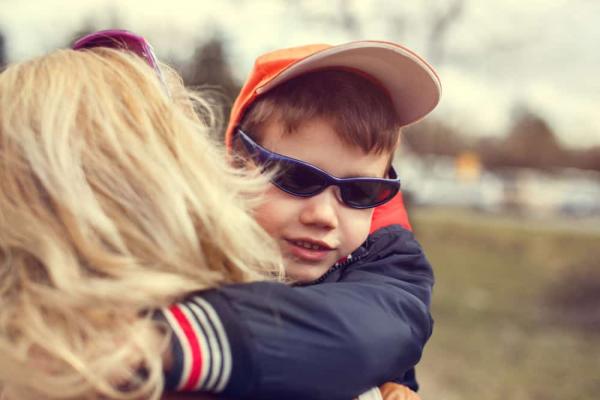
Parents hope they can raise compassionate and empathetic children. Sometimes that is easier said than done.
What makes empathy hard? According to a Family Studies article, "When we are immature, we treat other people as if they are not especially real. Their feelings and desires do not matter to us as much as the feelings and desires of the person they were unkind or disrespectful towards. We fail to see the world through their eyes, to understand how it is for them, and to connect with them where they are."
Instead, we basically see the world as revolving around ourselves. We get frustrated with people who are not doing what we want them to, who hurt us, or sometimes, we are more apathetic to those around us-we simply do not care about others.
It sounds harsh, doesn't it? Since we don't want to be that type of person and we certainly don't want out children to become that type of person, we must learn and teach our kids how to have empathy.
Here are 3 ways to help your kids develop empathy:
1. Model empathy
Of course, life does not come without frustrations, annoyances or inconveniences. We can combat our natural reaction to lash out with anger or blame by having empathy.
Using phrases like, "He must be having a hard day," "Perhaps she's really stressed out today," or "Maybe he just found out some bad news," can help you try to see the world through someone else's eyes.
Allow your children to hear you ask these questions, especially when they witness the frustrating behavior. This will help you and them react with empathy instead of compounding the other person's problems with your rash reaction. It will make the day better for everyone involved if you react with kindness and empathy.
2. Ask your children questions about others
A really great way to help your kids understand the world from others' perspectives is to ask important questions while you read to them. When something happens in the story, ask your child how that might make each character feel and why. Help them to see the different perspectives.
If your child comes home from school crying from being hurt by a friend or another child, you can ask them how he/she feels. Then ask them why they think the other child may have behaved that way. Are they being hurt at home? Are they hungry? Were they having a bad day?
This can help your child learn to respond kindly no matter the situation.
3. Help them see cues from others that may indicate how they're feeling
For younger children, there are lots of books that model faces expressing various emotions such as happy, sad, mad, scared, excited, etc. These can help younger kids recognize how someone is feeling by their facial expressions. Discuss how you can help someone feel better if they are sad or mad.
Additionally, when children have a disagreement, you can ask them how they think the other is feeling by their facial expression or other physical cues they are giving off. Stomping feet, slumped shoulders, crying, and crossed arms are all cues children can learn to recognize from others.
Empathy is the antidote to meanness. When you and your children can see people as real people with thoughts, feeling, problems and other circumstances (both seen and unseen) of their own, they will also begin to have empathy for them. By teaching your kids to recognize verbal and physical cues from others, and to see others rather than just themselves, they will become more compassionate, considerate, kind, and empathetic adults.

